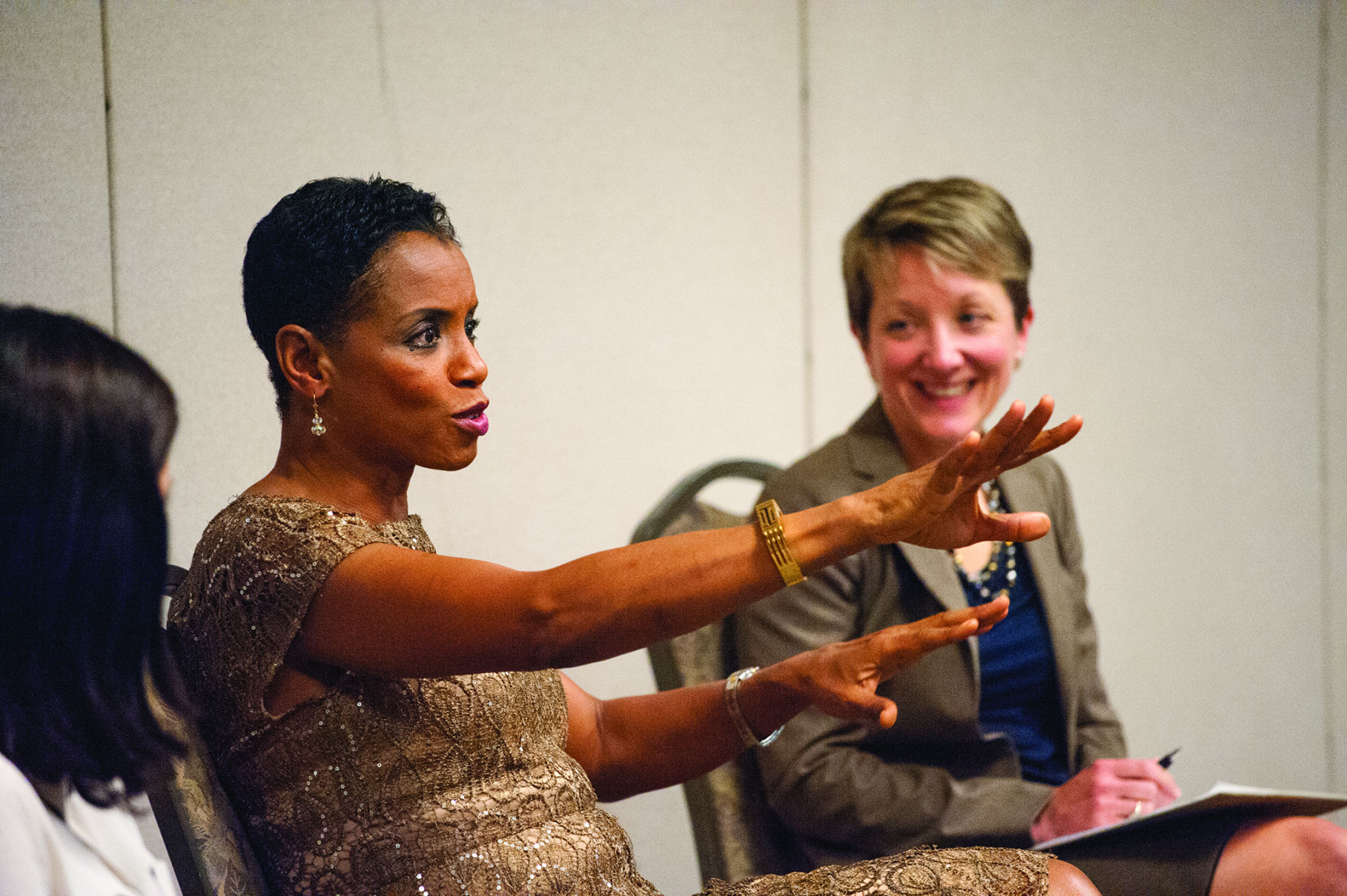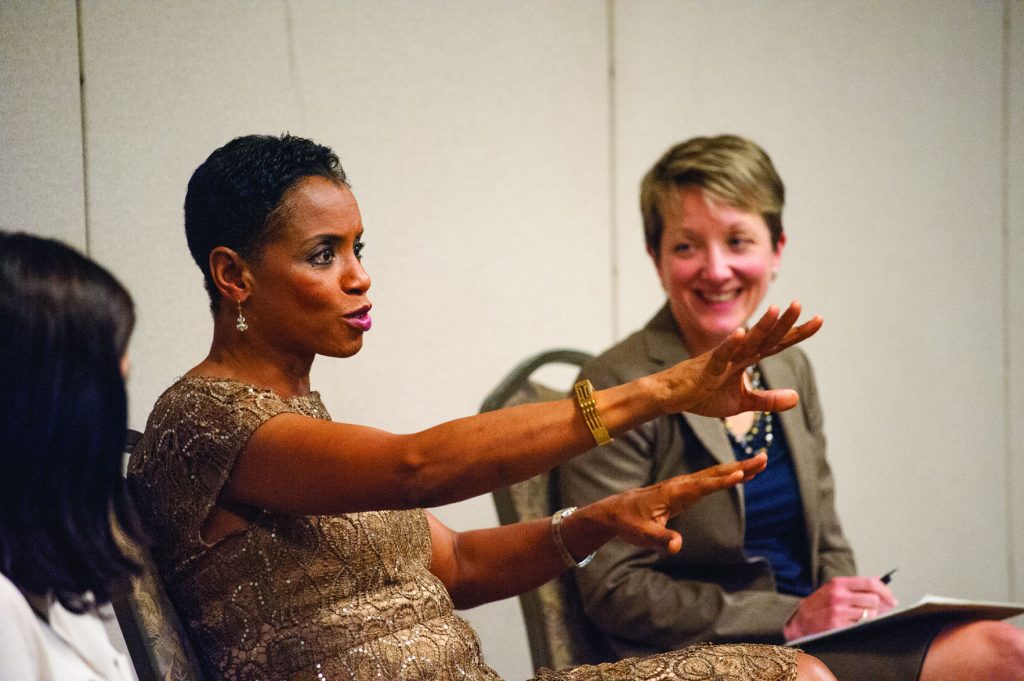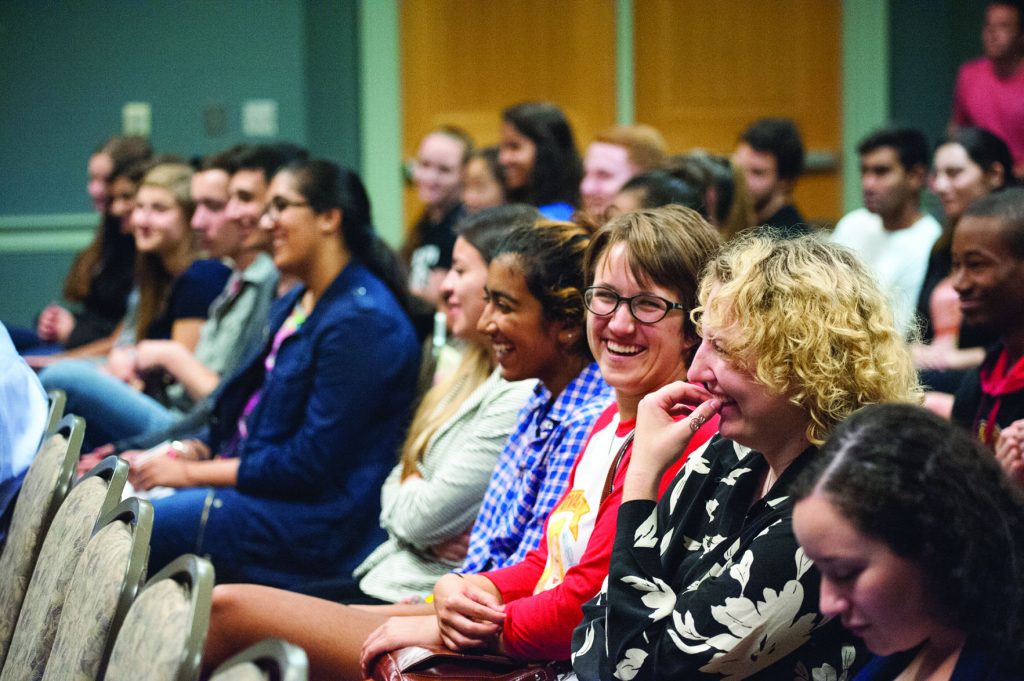When Rep. Donna Edwards (D-Md.) was about 12 years old, her father told her to write down what she wanted to be when she grew up. She tore a piece of paper and scribbled, “One day I want to be a lawyer and I want to be in politics,” and put it in her jewelry box.
During her first run for Congress in 2006, Edwards found that jewelry box stored away with the message still inside. During the campaign, Edwards remembers several people trying to dissuade her from running, telling her to run for positions that suited her better, such as school board or county council. She also received numerous comments about her appearance and about raising a child while in office — questions she never heard asked of men.
“Don’t let anybody talk you out of it, say you don’t have enough experience, that you’re not old enough,” Edwards told a room full of university students last night.
Edwards participated in a “Women in Politics” panel at Stamp Student Union hosted by College Democrats to talk about the challenges she overcame during her career and to inspire young women to get involved in politics.

Women in Politics Panel
Edwards lost that first campaign by about 3 percent, but was not discouraged. In 2008 she assembled a qualified campaign staff and earned her seat in the House of Representatives with 86 percent of the vote.
Research shows that women who run for office have been just as successful as men in recent years, according to government and politics professor Frances Lee, who participated in the panel. But women only comprise about 18 percent of the House and 20 percent of the Senate, which Lee said goes against the nation’s values.
“The basic foundational idea of a democracy is at some level we’re all equal,” Lee said. “But if you look at democratic institutions and see women underrepresented there, it suggests we’re not equal; we’re unequal in key ways.”
Also on the panel was Daniella Urbina, political opportunity program coordinator for Emily’s List, a political action committee that aims to get pro-choice, Democratic women elected.
“For some reason women have to prove that they are qualified when running in ways that men don’t have to,” Urbina said. She said women would benefit from campaign finance reform because fundraising can become an obstacle that keeps some from running at all.
Edwards said she has noticed a shift in the way younger people talk about women in office and is optimistic for the future of women in politics.
“Your generation is actually going to make a difference in how acceptable it is that women hold elected office or are CEOs at firms or senior partners at law firms,” Edwards said. “Your generation is going to flip the script on the way my generation and past generations have written it for women who want to move up.”
College Democrats Vice President Katherine Swanson, who moderated the panel, said she dreams of running for office and found Edwards inspirational.
“It was really nice to have some of the feelings I have about running for office validated,” the sophomore government and politics major said. “It was a good chance to hear that I’m not alone in this, there are women who feel the exact same way I do.”
Junior government and politics and Spanish major Samara Cohen also said the panel helped encourage her political aspirations.
“As a girl you’re often told that you can’t do a lot of things, and I’ve experienced that even at a young age,” she said. “It was really great to hear someone who is in such a high position of power say that ‘Yes, I’ve faced opposition because of my gender, but I’ve overcame it and now I’m here.’”
Congresswoman Donna Edwards talks about her political career at the Women in Politics Panel in the Charles Carroll room in Stamp on Tuesday, October 14, 2014.
The crowd reacts to a story that Congresswoman Donna Edwards tells at the Women in Politics Panel in the Charles Carroll room in Stamp on Tuesday, October 14, 2014.





